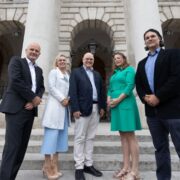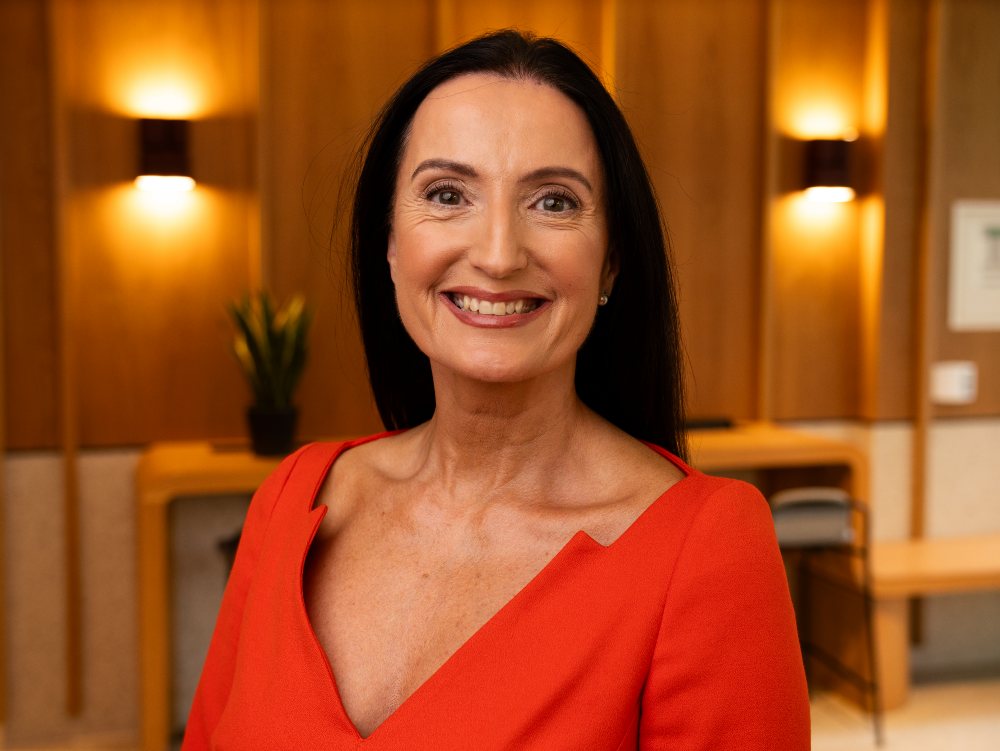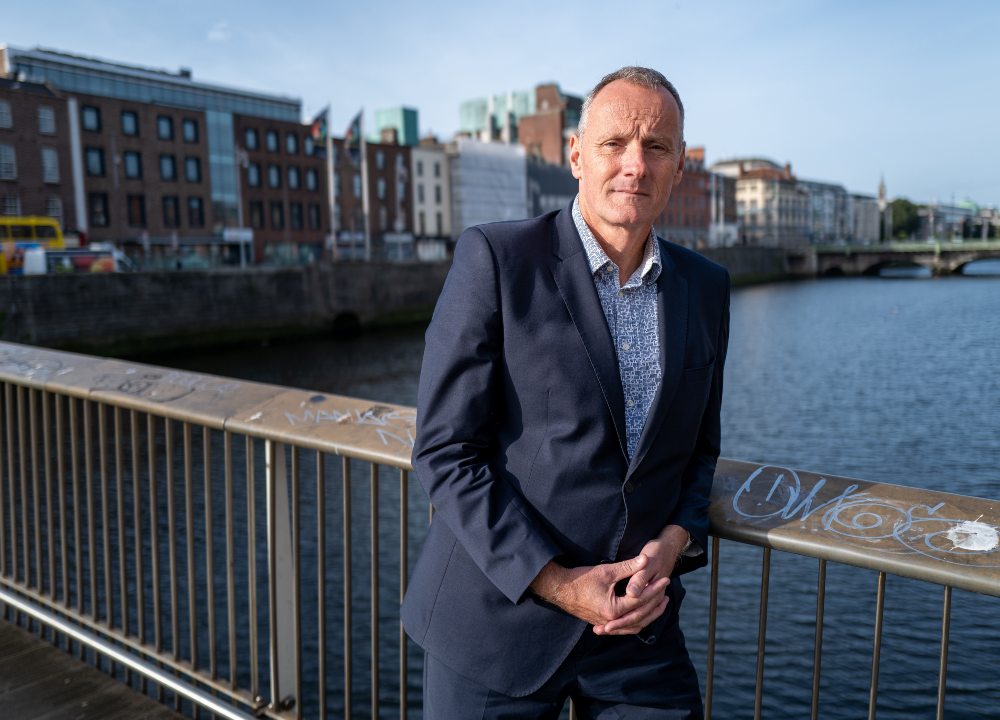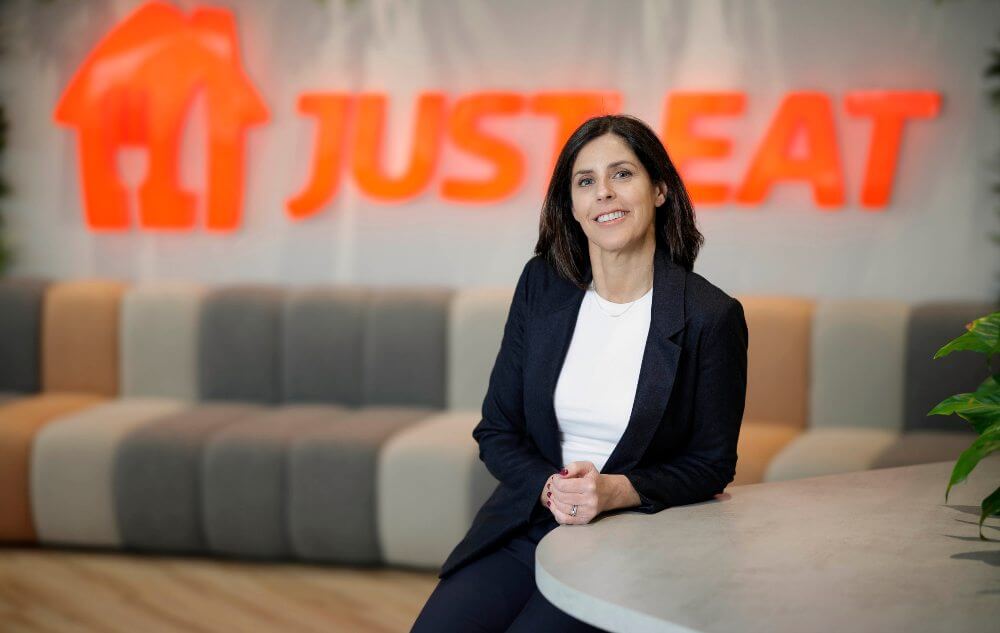The founder of business transformation player ONEZERO1 Garvan Callan shares his life and business lessons.
Garvan Callan is the founder and principal of ONEZERO1.
As a Board-level and C-suite transformation adviser, speaker, teaching fellow at Trinity Business School, and non-executive director, Garvan works across sectors and regions to merge strategic execution with the power of digital culture and innovation so that he can help leaders and their businesses prepare for tomorrow, today. He is the author of Digital Business Strategy.
“The world is already running at full tilt, and only getting faster”
Tell us about your background, what journey did you take to arrive at where you are?
I’ve had my own advisory practice ONEZERO1 for six years now. Launching my business represented a new departure in my life after 26 years in financial services.
For the first half of those 26 years, I was on the front line in commercial roles, either looking after customers or looking after teams who were looking after customers.
Then, just before the financial crisis, I got the opportunity to step into what I call “the heart of the house”. So I was off of the front line and became responsible for strategy and execution.
And then as we navigated the financial crisis, the strategy roles started turning into digital transformation roles. Initially this was at Ulster Bank followed by Danske Banke and then I moved to Bank of Ireland.
At the same time, I have always pursued and extended my perspective on the world via doing different things and investing in learning. These two strands of my life converged in 2018 to help me bring my business into the world.
Why are you doing what you are doing? What need are you meeting? What’s your USP?
I find that I’ve become for many of the clients I’ve worked with a sort of quarterback. What I mean by that is I usually get introduced to clients to help with something big they need to think through and solve for. This could be a new market, a new proposition, evaluation of whether a business model is out of date etc. So I tend to get brought in for a strategic brief. However, strategy then becomes 10% of the work I do and the other 90% becomes the “how”. Executing the strategy we’re talking about is where the value lies, and I tend to then transition to help make that happen, and then help to continually revitalise the strategy based on how we’re going.
This is where my concept of “stradaptability” comes into play – adapting to what’s needed for the strategy to work, and focusing on value creation through learning.
The world is already running at full tilt, and only getting faster. The need I’m meeting in this age of acceleration is I bring fresh thinking, guidance and an impetus for change.
My USP is the combination of my experience, my skills and my ability to spot patterns because of both of these things, and helping to look around the corners and accelerate past the potholes in the road.
“My dad was a huge inspiration to me. A hugely curious and open-minded man, he was also an example of the benefits of hard work”
How did you fund and start the business and what are your growth plans?
I’m essentially the business. ONEZERO1 is not a capital-heavy business, It’s an intellectual property (IP) business.
My 26 years of experience as well as my continuous focus on education and professional development is really what has funded my business.
As for growth plans, my focus is far more to grow Garvan and my clients than to grow my business.
In fact, so far I’ve resisted getting any bigger and the reason for this has a lot to do with my clients. My work is to help clients with their strategies and transformations, to move on to a new arc, and then to step back out when they are on a new trajectory. The “zero” in my business name really signifies opening and closing the loop. That means that I help them build the team to get big things done, and I do that through open consulting – finding the best internal and external squad. Once that work is underway and we’re learning and evolving strategy, I close the loop and move on to the next problem to be solved. This means my impartiality is guaranteed and this is an important value of mine.
My own purpose is to leave every engagement, project and person I encounter in a better place than before – something I ask myself every day.
“There is nothing more important than investing in yourself, and this I found can give you the confidence and conviction to take on big things”
What (or whom) has helped you most along the way? Who was your greatest mentor/inspiration?
I’ve been very lucky in my career in the organisations I’ve worked with over the years. Almost without exception, they backed me to frame and pursue transformation and strategy. They really put their trust in my abilities to help them think through their future paths. This contributed to me building the skillset I have and continue to grow. And it’s been a gift that I recognise.
Personally, my dad was a huge inspiration to me. A hugely curious and open-minded man, he was also an example of the benefits of hard work. I’m a big believer in 99% of success being perspiration. The “1” at the end of my business name symbolises how incremental efforts, done consistently, add up to big results. This is my fad’s fingerprint in my life.
What was the greatest piece of business advice you ever received?
A number of people on my path said to me, “invest in your education”, and it is the best business advice I’ve ever received. And I really try to live this. I read every day. I write to crystallise my thoughts. I teach to have my ideas really put to the test. And I constantly try to reflect through my projects to improve and accelerate them. There is nothing more important than investing in yourself, and this I found can give you the confidence and conviction to take on big things. I’m willing to back myself and take considered risks – the more I do it, the more I can do it.
“When you start your business, to really get going, it takes massive mental strength to step away from stability, and a ton of energy to build a new endeavour”
What circumstances/qualities/events can mark the difference between success or failure in life or business?
I write about this in my book, where procrastination and failing to commit often mark the difference between success or failure. The old adages of “fortune favours the brave” and “carpe diem” are true – seize the day, take the leap and adapt is my call. If you don’t, don’t expect anything to change, in fact in a world of increasing acceleration, not changing at that pace of change means going backwards. I don’t meet too many people who are happy to go backwards.
What was the most challenging aspect of either starting or growing the business?
There are many challenges along the way, but for me there are two important moments for the founder:
When you start your business, to really get going, it takes massive mental strength to step away from stability, and a ton of energy to build a new endeavour. You are your own boundary, but overcoming your own perceived limitations to make a bet on yourself is a big leap of faith that’s totally necessary. And being crystal clear and funnelling focus to give it the best shot requires discipline and resolve.
And then once you’re growing your business, realising the limitations of self can be a hard one. Founders embody the vision of the company, and fuel it with their passion. But it takes more than a vision and passion to build a sustainable, scaling company. Expansion requires extension, both of talent and energy, and building out the business IP to transcend the scaling journey is a significant limitation or break point. Success is made by the sum of parts, and no one has all the parts.
“Overall Ireland is very progressive on innovation and digital transformation”
How did you navigate your business through the pandemic and what lessons did you learn?
Like most people I went from physical to virtual almost overnight. They key was to not hesitate but take an approach to move forward and to solve at pace. As a transformation leader, it was critical that I didn’t flinch, that I lit the fuse for my clients to adapt and get on with it on screen rather than in the room, and show how quickly we can innovate when we put our minds to it. The pandemic brought this quality out in so many people all at once and I co-wrote about it in my blog “Are you flourishing under fire?”
The lessons I learned from that time I’ve maintained since. My belief in human endeavour and resilience is undimmed. But I also learned to reconnect with nature and that’s not one I’m going to forget again.
The chapel of the shopping centre suddenly became a non-option and other dimensions, such as forests, fields, walks, etc. moved to the fore. Were we all (re)discovering balance in a stressful time? I like to think so.
And then I also learned it’s really difficult to create when you’re not in the room with someone. It’s just harder, so I try to blend physical and digital today, and find that my philosophy has become practice – physical for the really complex and creative stuff, and digital for the transactional and efficient stuff.
How has digital transformation been a factor in your scaling journey and do you believe Irish firms are utilising digital technologies sufficiently?
Yes, I use digital transformation strategies to help my clients, and to fuel their strategies – we don’t do digital strategies, we do strategies for the digital age.
With regards to Irish firms using digital transformation, I’d say it’s a mixed bag. In my view, 80% of firms are using strategies that harness digital and 20% are thinking about it or experimenting with it, and even being a little shy with it.
But overall Ireland is very progressive on innovation and digital transformation – our open economy and talented young workforce, alongside an inherent culture of emboldened curiosity have helped a lot, not just to get things done, but also to look at where else it’s being done and taking the best back to base.
If you were to do it all over again, what would you do differently?
I would have tried to find a better balance in my corporate career earlier on. A corporate career, and mine presented me with incredible opportunities, is great from a stimulation point of view, but life is about life not just one thing. The higher you go, the thinner the oxygen gets, and the more you have to give to proceed. But if you choke other parts of your life from that oxygen, those muscles dwindle and life can become lopsided.
Understanding that balance is better, can make you stronger and faster is a lesson I have learned. Sometimes you have to go slower to go faster. Be more present to be more potent. And a better you is a better professional, particularly as you become more senior where it is less about what you do, and all about how you direct, guide and inspire.
Who inspires you in business today? What advice/guidance do you give new hires and how do you nurture talent in your organisation?
I look around today and see a lot of fantastic leaders. I am always struck by people acting on a sense of purpose and relaying this in how they lead. I see this in Satya Nadella of Microsoft. His style unlocks intrinsic motivation and aligns purpose with prowess. He is a storyteller and brings big ideas to life, in a simple way so that people can consume them, and want to be part of them.
For new hires, I always advise building connections with other people, connecting with like-intended folk and aligning with a purpose/belief. This is a recipe for fulfilment in life as much as being hired into a new role. And I say like-intended not like-minded – getting exposed to new ways, new cultures, new methods should be a daily pursuit in my book
This for me is the epicentre of nursing talent at an organisational level. I often highlight the importance of talent rotation. Give people an opportunity to do different things, be exposed to different ways of doing things, challenge different aspects of their skills/thinking. This can grow talent, but that’s really about growing people, their perspectives and their ability to change and adapt. New hires but also existing talent learn so much this way.
What business books do you read or would recommend?
I read a lot, and I especially love books about the arc of the past and the opportunities of the future. Two books recently consumed to that end include Prisoners of Geography by Tim Marshall and The Coming Wave by Mustafa Suleyman and Michael Bhaskar. I believe that we have the perpetual opportunity to learn from those that have gone before, but that we need to try and see what new futures will emerge.
What technologies/tools do you use personally to keep you on track?
Lists! I have both digital lists and physical lists, and I manage both actively throughout the day. I rely on AI and audio tools for ideation and capturing my research. I use a notebook, but there’s something meditative about strokes on a keyboard. I love getting into flow and I find writing and typing does this for me.
What social media platforms do you prefer and why?
LinkedIn due to it being the professional network. I’d love to be more active on others such as Instagram, but I just don’t have the time – right now my time on social media is heavily LinkedIn-centric.
Finally, if you had advice for your 21-year-old self – knowing what you know now – what would it be?
I would have travelled more. And the advice I give to my own children I’d give to 21-year-old me – don’t try to figure out what you want to do too early. In fact be brave and let it unfold. Life is about learning. Enjoy the journey and don’t make it all about the destination, making sure to take a few detours along the way, which I am immensely!
-
Bank of Ireland is welcoming new customers every day – funding investments, working capital and expansions across multiple sectors. To learn more, click here
-
Listen to the ThinkBusiness Podcast for business insights and inspiration. All episodes are here. You can also listen to the Podcast on:
-
Spotify
-
SoundCloud
-
Apple





